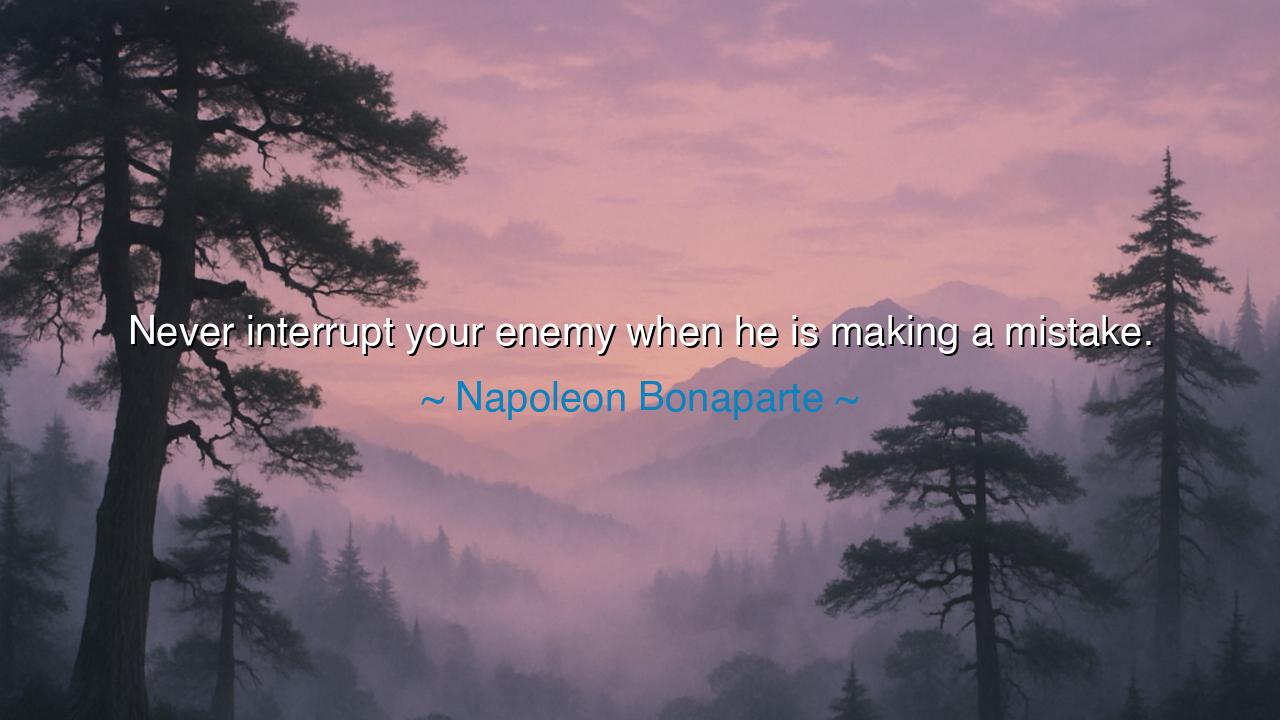
Never interrupt your enemy when he is making a mistake.






The words of Napoleon Bonaparte — “Never interrupt your enemy when he is making a mistake” — stand as both a soldier’s stratagem and a philosopher’s counsel. They speak to the wisdom of patience, the art of allowing folly to destroy itself. Too often, pride urges us to strike swiftly, to boast, to correct — yet Napoleon reminds us that the wiser course is silence, for the seeds of ruin often blossom without our hand. To intervene is to rescue the adversary from his own downfall; to wait is to let victory come without effort.
This principle belongs not only to the field of war, but to every arena of life. The merchant who watches a rival squander resources, the statesman who witnesses an opponent overreach, the debater who hears arrogance unravel an argument — all know the power of restraint. To hold one’s tongue, to wait for the mistake to ripen, is an act of discipline. For silence, though hard, can be sharper than the sword.
History offers us vivid examples. At the Battle of Austerlitz in 1805, Napoleon himself used this wisdom to great effect. He feigned weakness, luring the allied armies of Russia and Austria into overconfidence. They spread their lines too thin, descending into valleys where they became vulnerable. He did not interrupt their blunder, but let them press deeper into folly — and then struck with devastating precision, securing one of his greatest victories. Thus his words are not mere theory, but hard-earned truth born on the battlefield.
The same lesson echoes beyond war. In the fall of Richard Nixon, it was not a sudden blow from enemies that undid him, but his own choices — secrecy, arrogance, and denial. The wise among his rivals did not rush to intervene, but let his missteps gather weight until the burden crushed him. In this, we see that even in the realm of politics, as on the field of battle, folly is its own executioner.
Let future generations remember this wisdom: when your enemy stumbles, do not rush to steady him. Let folly run its course, let arrogance collapse beneath its own weight. To act with patience is not cowardice but mastery, for in waiting you allow victory to come of itself. Thus Napoleon teaches that the greatest generals — and the greatest souls — are not those who always strike, but those who know when silence and restraint win the day.






AAdministratorAdministrator
Welcome, honored guests. Please leave a comment, we will respond soon